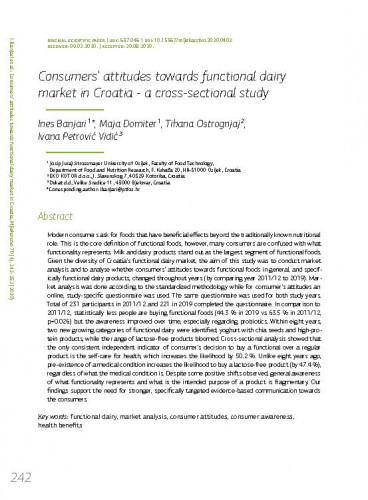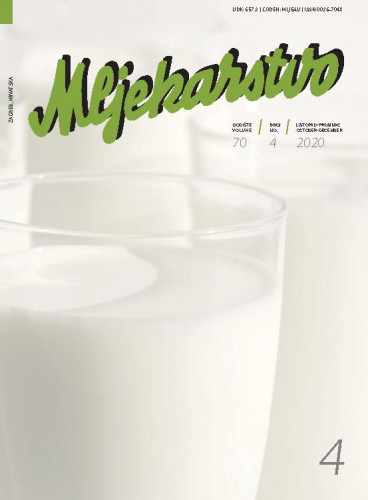Modern consumers ask for foods that have beneficial effects beyond the traditionally known nutritional role. This is the core definition of functional foods, however, many consumers are confused with what functionality represents. Milk and dairy products stand out as the largest segment of functional foods. Given the diversity of Croatia’s functional dairy market, the aim of this study was to conduct market analysis and to analyse whether consumers’ attitudes towards functional foods in general, and specifically functional dairy products, changed throughout years (by comparing year 2011/12 to 2019). Market analysis was done according to the standardized methodology while for consumer’s attitudes an online, study-specific questionnaire was used. The same questionnaire was used for both study years. Total of 231 participants in 2011/12 and 221 in 2019 completed the questionnaire. In comparison to 2011/12, statistically less people are buying functional foods (44.3 % in 2019 vs 63.5 % in 2011/12, p=0.026) but the awareness improved over time, especially regarding probiotics. Within eight years, two new growing categories of functional dairy were identified; yoghurt with chia seeds and high-protein products, while the range of lactose-free products bloomed. Cross-sectional analysis showed that the only consistent independent indicator of consumer’s decision to buy a functional over a regular product is the self-care for health, which increases the likelihood by 50.2 %. Unlike eight years ago, pre-existence of a medical condition increases the likelihood to buy a lactose-free product (by 47.4 %), regardless of what the medical condition is. Despite some positive shifts observed, general awareness of what functionality represents and what is the intended purpose of a product is fragmentary. Our findings support the need for stronger, specifically targeted evidence-based communication towards the consumers.
Sažetak

 Mljekarstvo.com : časopis za unaprjeđenje proizvodnje i prerade mlijeka : 70,4(2020) / glavna i odgovorna urednica, editor in chief Rajka Božanić.
Mljekarstvo.com : časopis za unaprjeđenje proizvodnje i prerade mlijeka : 70,4(2020) / glavna i odgovorna urednica, editor in chief Rajka Božanić.